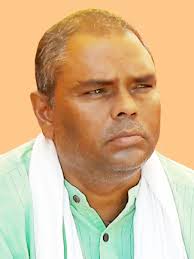Upendra Yadav: Biography, Daily Life, and Significance in Society
Upendra Yadav is a prominent political figure in Nepal, widely known for his contributions to the country’s political and social landscape. He has played an essential role in the political development of Nepal, particularly as a leader of the political party, the Federal Socialist Forum Nepal. His journey, from humble beginnings to becoming a key figure in Nepal’s political framework, is a testament to his commitment to social change, economic growth, and the fight for a more inclusive society.
Upendra Yadav Early Life and Education
Born in a small village in the Sarlahi district of Nepal, Upendra Yadav’s early life was marked by adversity and challenges. Growing up in a rural area, he experienced firsthand the difficulties faced by marginalized communities. However, Yadav’s determination to pursue education and bring about positive change led him to rise above his circumstances. He completed his schooling locally before moving to Kathmandu for further education.
His formal education played a crucial role in shaping his understanding of politics, governance, and the importance of social justice. Yadav later pursued a degree in law, which not only empowered him with knowledge of legal systems but also provided him with the necessary tools to advocate for the rights of underrepresented groups.
Upendra Yadav Political Career and Achievements
Yadav’s political career began in the late 1990s, when he became active in advocating for the rights of marginalized communities, especially the Madhesi population in the southern plains of Nepal. His leadership and advocacy were instrumental in the formation of the Madhesi People’s Rights Movement, which sought equal representation and autonomy for the Madhesi people. This movement gained momentum over time, and Yadav became a prominent figure in Nepal’s political scene.
In 2008, Yadav was elected to the Constituent Assembly and later became a minister in the government of Nepal. Throughout his political journey, Upendra Yadav has championed issues such as federalism, secularism, and the rights of ethnic minorities, particularly the Madhesi, Tharu, and other marginalized groups. His efforts led to significant changes in Nepal’s constitution, which established federalism and ensured greater inclusion of diverse communities in governance.
Upendra Yadav Daily Life and Impact
Upendra Yadav’s daily life is not just about politics; it’s about staying connected with the people he represents. He is known for his ability to maintain strong relationships with local communities and always prioritizes their concerns. His routine often involves meeting with constituents, addressing social issues, and participating in discussions that shape the future of the country.
His work is demanding, but Yadav is deeply committed to his cause. His consistent efforts have resulted in substantial changes in Nepal’s political and social landscapes. As a politician, he balances his responsibilities by promoting social welfare programs and working toward economic prosperity for Nepal’s marginalized communities.
Upendra Yadav Significance and Observance
Upendra Yadav’s contributions are significant not just in the context of politics but also in terms of his social impact. He has been an advocate for policies that promote education, healthcare, and human rights. Through his leadership, Nepal has seen a more progressive approach to governance that seeks to empower all citizens, regardless of their ethnicity or socioeconomic status.
His significance in Nepalese society is also reflected in his ability to challenge traditional structures and push for reforms that address inequality. In a country like Nepal, where social divisions have historically been deep-rooted, Upendra Yadav’s work has been pivotal in promoting unity and inclusivity.
Important Facts About Upendra Yadav
- Leader of the Federal Socialist Forum Nepal: Upendra Yadav played a crucial role in forming and leading the Federal Socialist Forum Nepal, a political party that advocates for federalism, secularism, and democracy in Nepal.
- Pioneer in Madhesi Rights: Yadav is widely regarded as the face of the Madhesi movement, advocating for the rights of the Madhesi people in Nepal’s political structure.
- Constituent Assembly Member: He was a key figure in Nepal’s first Constituent Assembly, contributing to the formation of Nepal’s federal democratic republic.
- Influential Minister: As a former Minister in the Nepal government, Yadav implemented key reforms that contributed to the nation’s development.
- Social Justice Advocate: He has consistently pushed for social justice and the empowerment of marginalized groups, including the Tharu, Dalits, and other minority communities.
Upendra Yadav FAQ:
Q1: What is Upendra Yadav’s main political ideology?
A1: Upendra Yadav advocates for federalism, secularism, and democracy. He believes in inclusive governance where all communities, regardless of their background, have equal rights and opportunities.
Q2: How has Upendra Yadav impacted Nepal’s constitution?
A2: Yadav was instrumental in Nepal’s transition to a federal republic. His advocacy led to the inclusion of federalism and secularism in Nepal’s constitution, ensuring a more inclusive political system.
Q3: What is Upendra Yadav’s approach to daily life?
A3: Yadav is deeply connected with the people he serves. His daily life involves interacting with his constituents, addressing their concerns, and actively working toward improving social and economic conditions for marginalized communities.
Wishing and Conclusion
Upendra Yadav’s journey is an inspiration to many, particularly those from marginalized communities, showing that perseverance and dedication can lead to meaningful change. His legacy is one of progress, inclusion, and advocacy for social justice. Today, Upendra Yadav continues to be a beacon of hope for many in Nepal and beyond.
As we reflect on his contributions, we wish him continued success in his efforts to build a fairer, more inclusive society.










